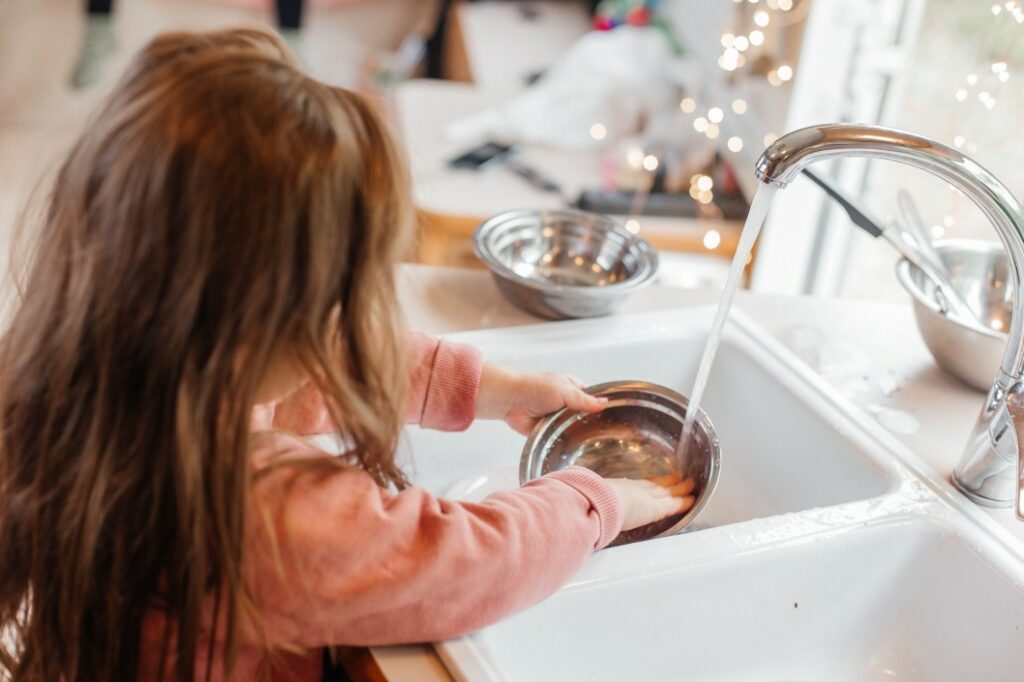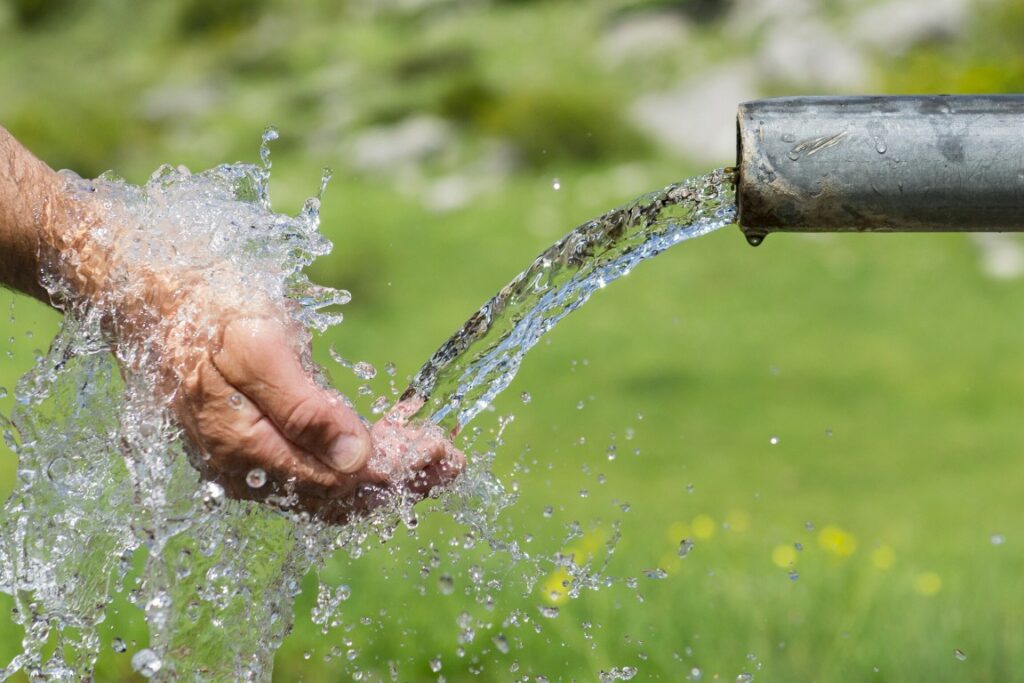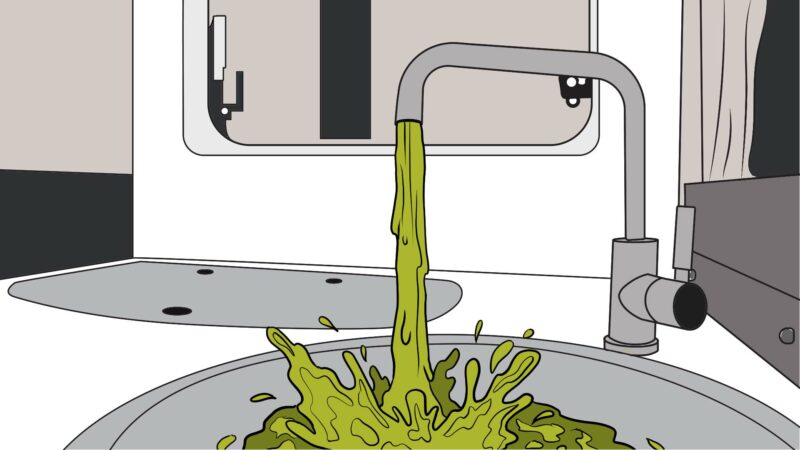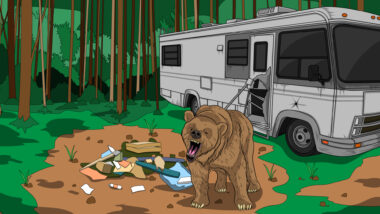Table of Contents Show
Any great RV trip starts with bringing along the necessities of life: shelter, food, and of course, water. But if your freshwater doesn’t taste good or carries an annoying smell, should you drink it?
You can take several actions before you hit the road that will provide safe water for drinking, bathing, and brushing your teeth. You just need to know how to keep water fresh in your RV. Let’s take a look.
How Long Does Water Stay Fresh in an RV Tank?
Most RVers agree that the water stored in a freshwater tank is safe for no longer than two weeks. This is true if the tank isn’t being refilled and used over that period, as the environment of a water tank is a perfect petri dish for bacteria that can cause bad smells and taste, as well as serve as a host for algae and mold.
Why Doesn’t Stored Water Stay Drinkable?
The freshwater tank is most likely made of hard plastic, which can transfer its taste and smell into water that sits stagnant in that tank for long periods. If you aren’t using the water and refilling it, the tank can harbor bacteria, making it unsafe.
When you think about water sitting in a plastic tank, especially in hot temperatures, it’s no wonder that the liquid becomes susceptible to smells and bacteria. And even in cooler locations, stagnant water won’t take on any positive qualities when left standing.

Can You Drink Old RV Tank Water?
You could take your chances drinking old water from your fresh water tank, but why tempt fate (and good health)? Clean the tank thoroughly, then fill and use the fresh water in your RV frequently so that the supply never becomes “old.”
Some RVers have even decided that to keep fresh water in their rigs, they should filter it. Many have installed filters on their RV sinks or put the water in pitchers with built-in filters. Others choose to drink only bottled or water.
Pro Tip: We can help you choose the perfect RV water filter to enjoy cleaner water in your RV.
Can You Test the Purity of Your Stored Water?
Many times RVers fill their freshwater tanks, not knowing the quality of water they’re storing. To make sure you’re supplying safe water to your RV, start by utilizing a filtering system. There are many on the market, from carbon and iron filtration set-ups to those that use reverse osmosis and ultraviolet light to “clean” the water before it goes into your tank or out to the sink.
Then test the water quality with a testing kit. Most look for specific minerals. To test your drinking water, look for a kit that identifies contaminants like lead and chlorine. You’ll find water test kits that use strips or powder to look for substances that are detrimental to your health.

How to Keep Your Water Fresh in Your RV Tank
Once you’ve decided to be proactive about providing fresh water in your RV, start with cleaning your tank and sanitizing it using bleach and repeated fillings. Then use a filtering system to load your tank and use the water consistently.
In this way, you’ll naturally replace the water frequently and prohibit an environment where bacteria can grow. If your RV is sitting unused for a period, drain the fresh water tank completely. Then, start with a fresh tank during your next camping excursion.
Pro Tip: Learn how to sanitize your RV water tank and add it to your regular maintenance calendar.
Don’t compromise when it comes to safe and healthy drinking water inside your RV. It’s easy to ensure you keep your water fresh in your RV, starting with sanitizing the system, then consistent use. This habit will help you avoid distasteful or foul-smelling water and keep bacteria and algae at bay. How do you keep fresh water in your RV?







excellent article,thanks. I drain my system off when i get home this way I can fill & Flush all lines so water doesn’t get stagnant.
keebler